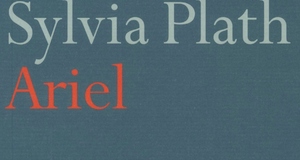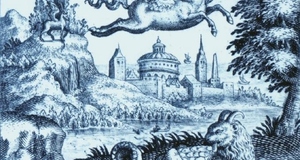Redefining the Elegy in the Twentieth Century: Thomas Hardy's The Convergence of the Twain And Sylvia Plath's Daddy
By
2012, Vol. 4 No. 08 | pg. 2/2 | « Sylvia Plath's "Daddy" is quite a different style of elegy compared to Hardy's "The Convergence of the Twain" and those of the previous centuries. As inferred from the title, it is written about her father, Otto Emil Plath, who died in 1940. Plath was only eight when her father died, and therefore did not write "Daddy" until many years had passed. In an attempt to define the elegy, some have decided the elegy must be written immediately after the loss; however, "canonical elegists like Spenser, Tennyson, and Hardy wrote elegies many years after the commemorated deaths" ("'Daddy…" 1142). Plath's "Daddy" is considered an elegy due to it being a poem of mourning, written about the loss of her father. It is usually her anger which is remembered from the poem, and her anger which deters the reader from considering "Daddy" an elegy; however, "Daddy" is not unique for its criticism of its subject. Modern elegists such as Yeats, Auden, Lowell, and Sexton follow the same path, finding ways to "criticize" their subjects (Yeats and Auden) as their speaker "mocks" (Lowell) and "curses" (Sexton) those who the poems revolve around ("'Daddy…" 1143). Plath's aggression can be seen throughout, but especially towards the end of the poem. "The boot in the face, the brute/ Brute heart of a brute like you" Plath's speaker declares (49-50). She calls him "a devil" and a "black man," before turning to the image of Otto Plath as a vampire who used his fangs to bite her "pretty red heart in two" (54-56). Her anger may seem excessive, but unlike Hardy's "The Convergence of the Twain," "Daddy" does contain several genuine lines of grief. For example, the lines And a head in the freakish AtlanticWhere it pours bean green over blue In the waters off beautiful Nauset. I used to pray to recover you. Ach, du (11-15) make it very easy to imagine an eight year old Sylvia Plath, or a young woman of twenty praying for her father to return to her. Plath's grief continues later in the poem. I was ten when they buried you. Plath's suicidal tendencies are well known, with numerous attempts having been recorded. In 1953, about twenty years after she was born, she severely overdosed on sleeping pills that had been prescribed for her depression. This may be what she is referring to in line 58's "At twenty I tried to die," although suicide is constantly mentioned in her works and does not always match up with her own known attempts. Her grief shines through her anger in these lines. While the grief in Plath's "Daddy" can be seen, the lines about killing her father threaten to detract from it. "Daddy, I have had to kill you./ You died before I had time—" the speaker proclaims in the second stanza (6-7). Later the speaker says, "If I've killed one man, I've killed two—/ The vampire who said he was you," and it is implied that the speaker is the one who kills the vampire (71-72). The final stanza begins with "There's a stake in your fat black heart," but there is no mention of how that stake got there (76). Since Plath's speaker says she killed a vampire, it can be assumed that the speaker is the one who put the stake into the vampire's heart. Just as Plath heightens the outwardly directed anger of the elegy, she also heightens its inward manifestation, pitilessly charging herself with having murdered her father. ("'Daddy…" 1144) She is angry with her father, and could be angry for a number of different reasons. The most likely is that he left her very early in her life, before Plath was ready for him to leave. Stanza two's "Daddy, I have had to kill you./ You died before I had time—" implies that he left suddenly (6-7). Later the speaker says "I never could talk to you," showing that there are things left unsaid between the two of them that are coming out in this elegy (22). "I have always been scared of you" she says later, again supporting the idea that the speaker could not say the things she wanted to say while Otto Plath was alive (41). Some more of the grief comes back into "Daddy" when it becomes evident that the speaker may not even fully remember her father. She says, "You stand at the blackboard, daddy,/ In the picture I have of you," bringing to mind a young woman trying to picture her deceased father but only being able to picture him posed in a certain photograph (51-52). In her grief Plath's speaker says, "I made a model of you," which could refer to the numerous poems Plath wrote about her father. Through her elegies she makes her father immortal. While Plath may have immortalized her father in "Daddy," thereby imitating elegies prior to the twentieth century, she does not seem to praise her father anywhere in the poem. Her anger and rage at his early death, as well as her grief and desire for them to be reunited shines through, but there are no lines of praise. The poem is also lacking in consolation for the reader, unlike Thomas Hardy's "The Convergence of the Twain." The suicide attempt hints at what could have been consolation. "At twenty I tried to die/ And get back, back, back to you," while distressing and harmful to the speaker, could have consoled the reader had the suicide been successful and the pair reunited—even though that reunion was in death (58-59). Unfortunately through "But they pulled me out of the sack,/ And they stuck me together with glue," the speaker reveals about the failure to commit suicide and thus the reader is left without consolation (61-62). While there isn't any consolation for the audience, Plath's speaker attempts to consol herself when says she "made a model" of her father (64). While this in part, refers to the elegy she has written, it also implies that she found a man just like her father. This is especially true since the following line reads, "And I said I do, I do," as if the speaker was reading wedding vows (67). But this man's fondness for "love of the rack and the screw" could mean that he either was fond of tormenting her, or he was mostly interested in breasts and sexual intercourse (66). Once again, Plath is unable to console herself. "So daddy, I'm finally through," the speaker says, giving up on trying (68). This is echoed in the final line of the poem: "Daddy, daddy, you bastard, I'm through" (80). The speaker has nothing left inside to share—all of her anger and grief have been shared, and she is left (along with the reader) without consolation. Despite being born almost on hundred years apart, the contributions that Thomas Hardy and Sylvia Plath made to the elegy changed the course of twentieth century poetry. Both "The Convergence of the Twain" and "Daddy" are about a great loss. Hardy offers consolation to the reader by indicating that the tragedy was caused by a higher power, allowing the audience to move on with their lives. He chose to write about the Titanic as if it were a person in order to remain closer to elegies from prior centuries, but his decision to write about an inanimate object as opposed to the passengers on that ship stretches the boundaries of elegies. Plath chose to write about her loss in a different way, showering the reader with the anger she wished upon her father as opposed to the praise most elegies offered. The poem "Daddy," while immortalizing her father and displaying Plath's grief, offered little consolation for the reader and is altogether a depressing read. Together Hardy and Plath changed the form of the elegy from poems which offer praise for the dead, express grief, provide consolation, and immortalize their subjects to poems which express the loss of anyone or anything in any way that the poet chooses. The elegy will never be the same.
References
Dauner, Louise. "Thomas Hardy, Yet and Again." Modern Age 42.2 (Fall, 2000): 358-71. Rpt. in Poetry Criticism. Vol. 92. Detroit: Gale, 2009. Literature Resource Center. Web. 20 Apr. 2012. Hardy, Thomas. "The Convergence of the Twain." Modern Poems. Ed. Richard Ellmann. 2nd ed. New York: W. W. Norton &, 1989. 44-45. Print. Materer, Timothy. "Sylvia Plath." American Novelists Since World War II: Fourth Series. Ed. James R. Giles and Wanda H. Giles. Dictionary of Literary Biography. Vol. 152. Detroit: Gale, 1995. Literature Resource Center. Web. 17 Apr. 2012. Plath, Sylvia. "Daddy." Modern Poems. Ed. Richard Ellmann. 2nd ed. New York: W. W. Norton &, 1989. 744-46. Print. Platizky, Roger. "Plath's Daddy." The Explicator 55.2 (Winter 1997): 105-7. Literature Online. Web. 22 Apr. 2012. Ramanzani, Jahan. "Daddy, I Have Had to Kill You": Plath, Rage, and the Modern Elegy." PMLA 108.5 (Oct., 1993): 1142-156. JSTOR. Web. 15 Apr. 2012. ---. "Hardy and the Poetics of Melancholia: Poems of 1912-13 and Other Elegies for Emma." ELH 58.4 (Winter, 1991): 957-77. JSTOR. Web. 16 Apr. 2012. ---. "Hardy's Elegies for an Era: 'By the Century's Deathbed'". Victorian Poetry 29.2 (Summer, 1991): 131-143. JSTOR. Web. 15 Apr. 2012. Random House, Inc. "Elegy." Dictionary.com. Dictionary.com, LLC. Web. 17 Apr. 2012. Suggested Reading from Inquiries Journal
Inquiries Journal provides undergraduate and graduate students around the world a platform for the wide dissemination of academic work over a range of core disciplines. Representing the work of students from hundreds of institutions around the globe, Inquiries Journal's large database of academic articles is completely free. Learn more | Blog | Submit Latest in Literature |
















